This post may contain affiliate links, from which we earn an income. Click here to read our affiliate policy.
Discover the best things to see and do in Baku Azerbaijan
Baku, the capital of Azerbaijan on the Caspian Sea, blends rich history with stunning architecture and a mix of cultural influences. As the largest city in the Caucasus, Baku has been a crucial link between East and West, playing a significant role in the ancient Silk Road.
Once barren, Baku has transformed into a vibrant metropolis, often called the ‘Paris of the East.’ With a population of over 2.2 million, it juxtaposes remnants of its Soviet past with modern architecture and a thriving cultural scene.
Join us as we explore all the best things to do in Baku, from its ancient palaces and bustling markets to its avant-garde museums and vibrant food scene, uncovering the city’s hidden gems and iconic landmarks along the way.
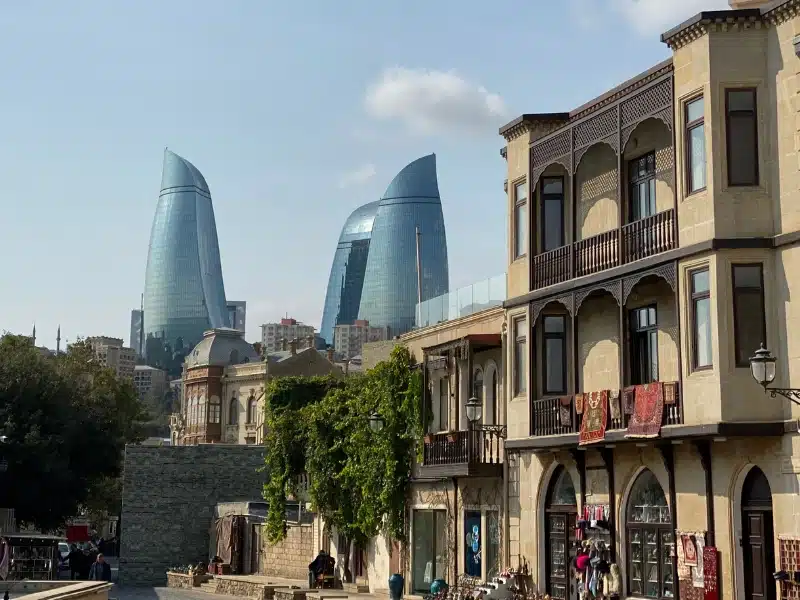
Explore the Old City with a Journey Through Time
The Old Town of Baku, also known as Icherisheher (Inner City), is the historical heart of Azerbaijan’s capital city. Enclosed by a 10-meter-high fortress wall with 25 towers and five gates, this UNESCO World Heritage site offers a fascinating glimpse into Baku’s rich past, dating back to at least the 12th century.
Icherisheher is a labyrinth of narrow, winding streets lined with traditional houses, mosques, and caravanserais. Its architecture reflects a blend of Persian, Arabic, Ottoman, and Russian influences, showcasing layers of cultural and religious history in its stone walls.
Don’t stick to the well-trodden path here; duck into the small alleys and lesser-visited streets for a glimpse of everyday life in the old city and the traditional workshops, tea houses, and bakeries that served the local population long before tourists arrived in Baku.
Icherisheher is also the perfect place to shop for souvenirs of gifts. You’ll find metalwork, antiques, fabrics, Soviet memorabilia, traditional Papakha hats, carpets, and even miniature books at the curious Museum of Miniature Books.
The Maiden Tower
The centerpiece of the historic district is the iconic Maiden Tower, a 12th-century landmark that once served as a lighthouse and maybe a fire temple or observatory, but the origins of its name and structure have long been lost to history.
Inside the Maiden Tower, there is a museum on three levels that shares the story of Baku’s historical evolution. You can also climb the tower’s tiny spiral stone staircase to the top for views of Baku Bay and the Bulvar.
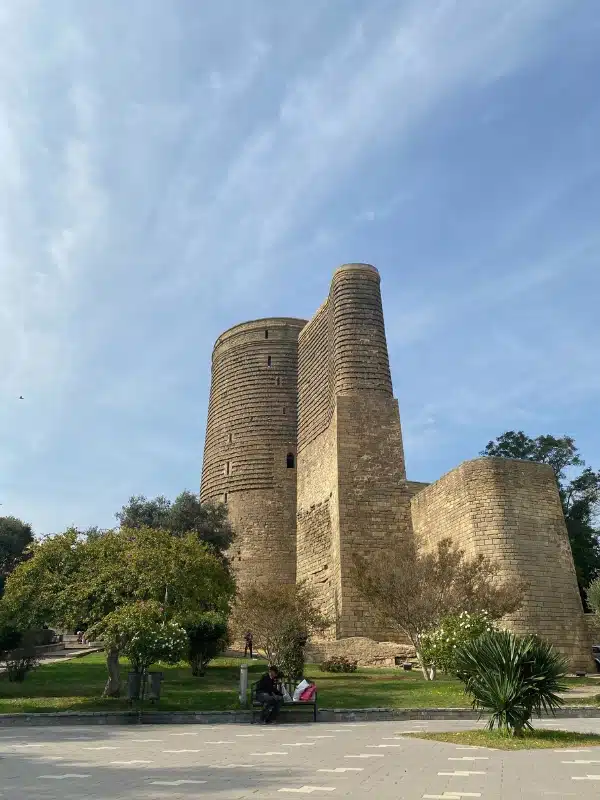
Shirvanshahs’ Palace
The Shirvanshahs’ Palace is an architectural gem and a significant cultural heritage site. Built during the 15th century, the palace complex served as the royal residence of the Shirvanshahs, the ruling dynasty of the Shirvan region.
The palace is not only a symbol of the Shirvanshah dynasty’s power and influence but also an important example of medieval Azerbaijani architecture. It offers a glimpse into the region’s history and the cultural blend that characterized Baku during the medieval period.
This is a great place to take images that perfectly capture Baku’s contrasting nature. Ancient stone walls overlay the ultra-modern Flame Towers and centuries of architecture, including French Gothic, imperial Russian, and Soviet, sit in between.
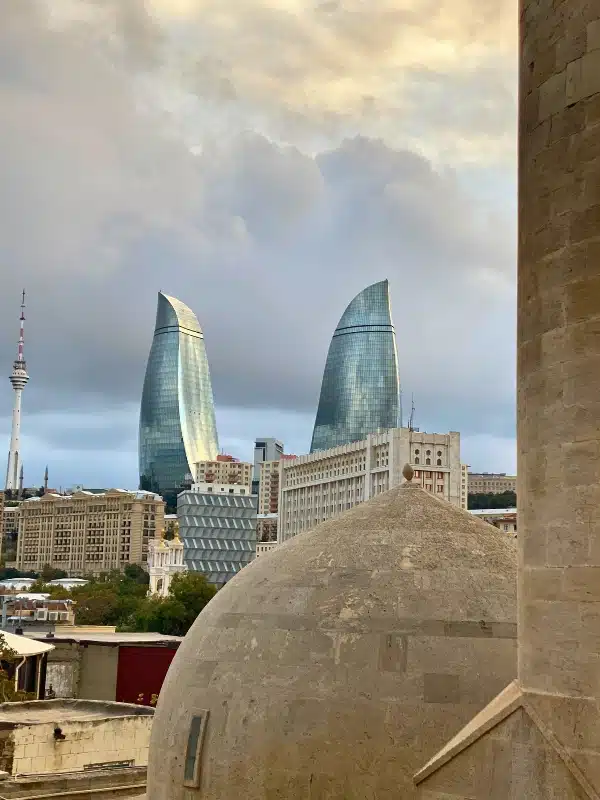
Beyler Mosque
The 19th-century Beyler Mosque is a historical and architectural monument opposite the Murad Gate of the Shirvanshah Palace. During the construction of the mosque, which was built on the site of an older mosque, a new architectural style was founded. For the first time, an attempt was made to apply the techniques inherent in the architectural school of the Shirvanshahs.
Between 2014 and 2015, the mosque was restored and is now used as a museum. The interior has a three-naved prayer hall and a decorated mihrab and houses ancient books and artifacts. Step into the cool interior for a few minutes to escape the hustle and bustle and admire the delicate plasterwork and marble columns.
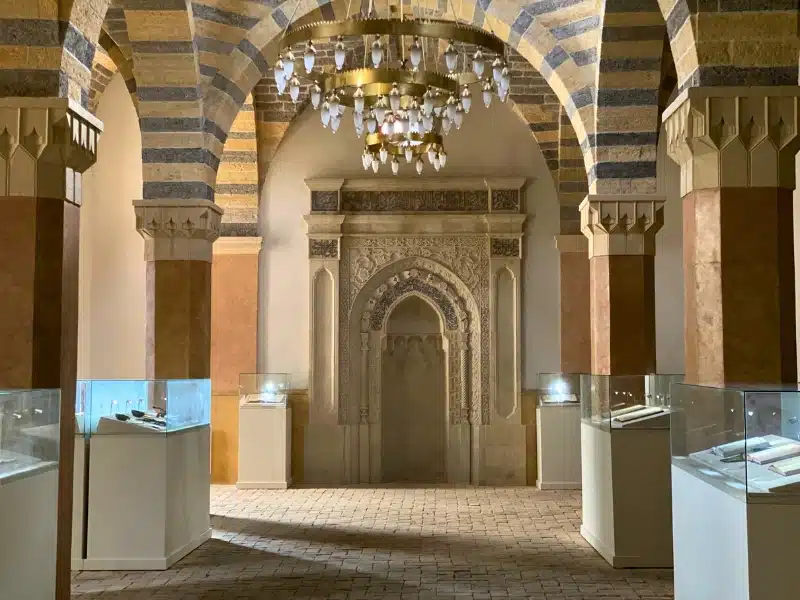
Gosha Gala Gapisi
The paired fortress gates, built in the 12th century, were once part of the city’s defensive fortifications. The name reflects the structure’s original design, which featured a set of gates allowing entry into the inner fortifications.
Architecturally, the double gates exhibit the classic features of medieval Islamic military architecture. They are made of robust stonework, with intricate carvings and inscriptions that highlight the craftsmanship of the era. The gates are flanked by towering walls that once formed part of the city’s defensive perimeter.
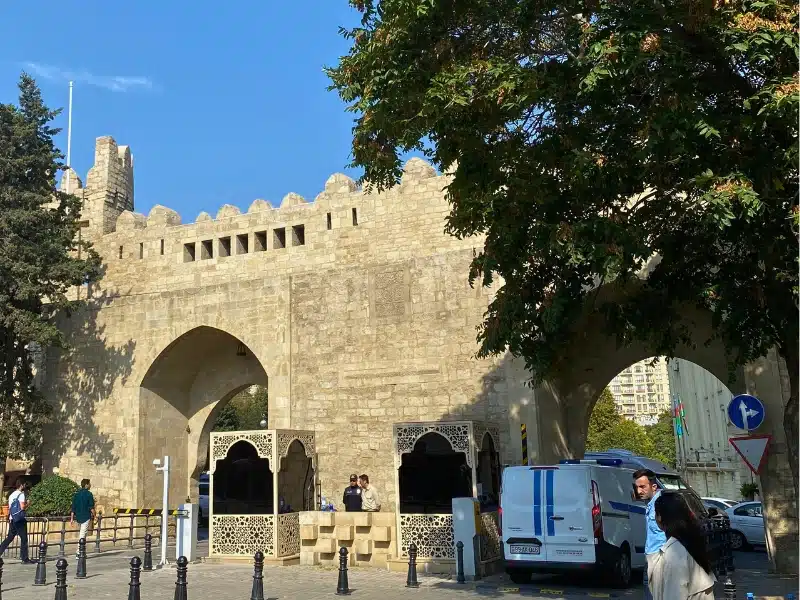
Muhammad Mosque
The Muhammad Mosque, also known as the Siniggala Mosque, was built in the early 11th century and is one of the oldest mosques in the city and a notable example of Islamic architecture in the region.
The mosque is particularly famous for its distinctive minaret, which bears an inscription dating back to 1078-1079, making it one of the oldest surviving structures in Baku. The mosque’s name, ‘Siniggala,’ which means ‘broken tower’ in Azerbaijani, originates from an event in the 18th century when the upper part of the minaret was damaged during a Russian naval attack.
The Muhammad Mosque’s architectural style features typical elements of the Shirvan-Absheron architectural school, characterized by simple yet elegant stonework and geometric designs.
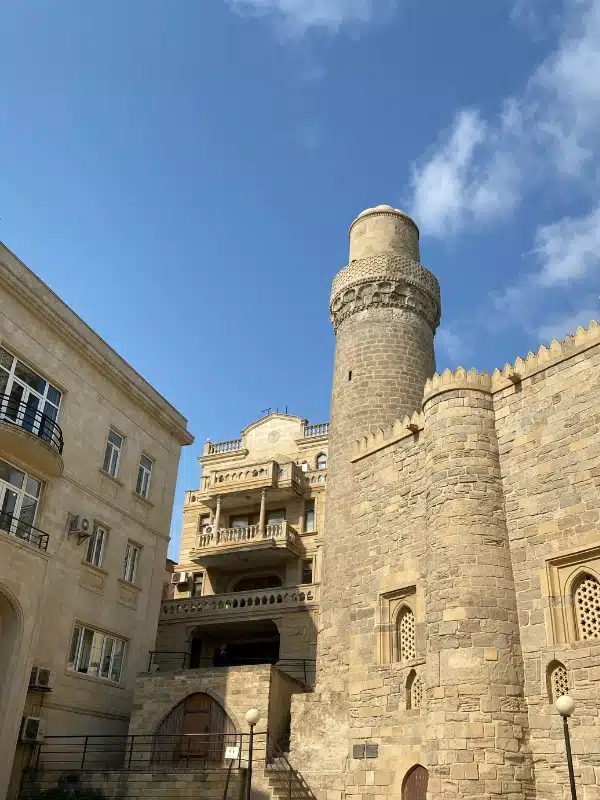
Bazaar Square
Bazaar Square was once one of Baku’s most important squares and would have been a marketplace in ancient times. Now excavated, the square lies below today’s street level, and you can wander through its arcades, arches, and stone cloisters.
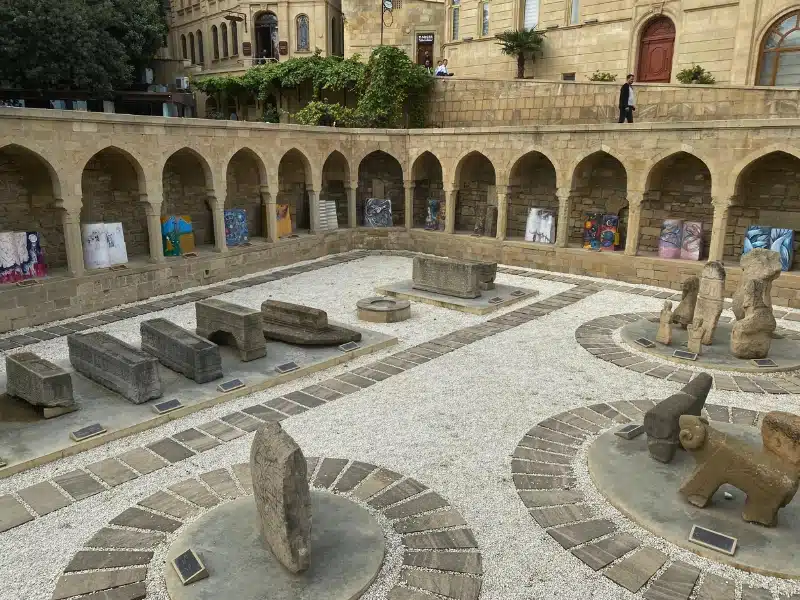
Free Walking Tours in Baku
If you want to get to grips with Baku in an afternoon or two, we highly recommend Azerbaijan Traveller for their top rated free walking tours in Baku. We booked the Baku Old Town and oil heritage walking tour and spent an entertaining and informative afternoon with Gani, an exceptionally good guide and a fountain of Baku knowledge.
Discover the Contrasts of Modern Baku
In the new town of Baku, there are many leafy and wide boulevards. Lined with eateries, wine bars, and cafés, the best time to visit is early evening when the sun is down and families come out to promenade. Start on pedestrian Rasul Rza and work your way to Fountains Square for a lively stroll accompanied by street entertainment and live music.
Flame Towers
While the Old City preserves the essence of Baku’s past, the city’s modern face is equally captivating. The Flame Towers, a trio of skyscrapers that dominate the skyline, are a striking example of Baku’s architectural prowess, with the height of the tallest tower being 182 meters. The three flame-shaped towers are intended to symbolize the elements of fire and are a reference to Azerbaijan’s nickname, ‘The Land of Fire.’
The towers are completely covered in LED screens, and at night, they display various images, such as flickering flames and the flag of Azerbaijan. There are a number of viewpoints in the city where you can take a taxi to get the best images.
One of the towers is home to the Fairmont Baku, and you can stay there to experience the towers from inside. The others are offices.
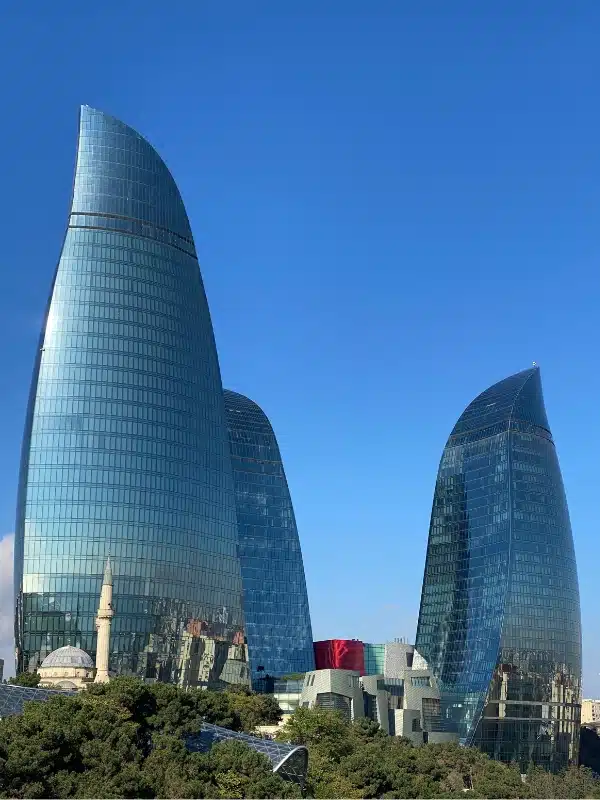
Heydar Aliyev Center
Another architectural gem is the Heydar Aliyev Center, a cultural complex that showcases the city’s commitment to the arts and modern design. Designed by the Iraqi-British architect Zaha Hadid, the center’s fluid, organic forms, and striking curves have made it a true landmark of Baku’s contemporary landscape.
The whole center is surrounded by gently sloping grass, interspersed with stairs, small ponds, and channels carrying water, creating a tranquil oasis in the busy city.
Azerbaijan National Carpet Museum
The building housing the fascinating Azerbaijan Carpet Museum is like nowhere else in the world. Shaped and styled like a rolled-up carpet, it perfectly depicts its use as a place to display carpets. Inside, you can see the story of how Azerbaijan’s carpets are made and have evolved over time.
On the ground floor, there is often a traditional carpet weaver who shows how to use a loom to create beautiful patterns on Azerbaijani carpets.
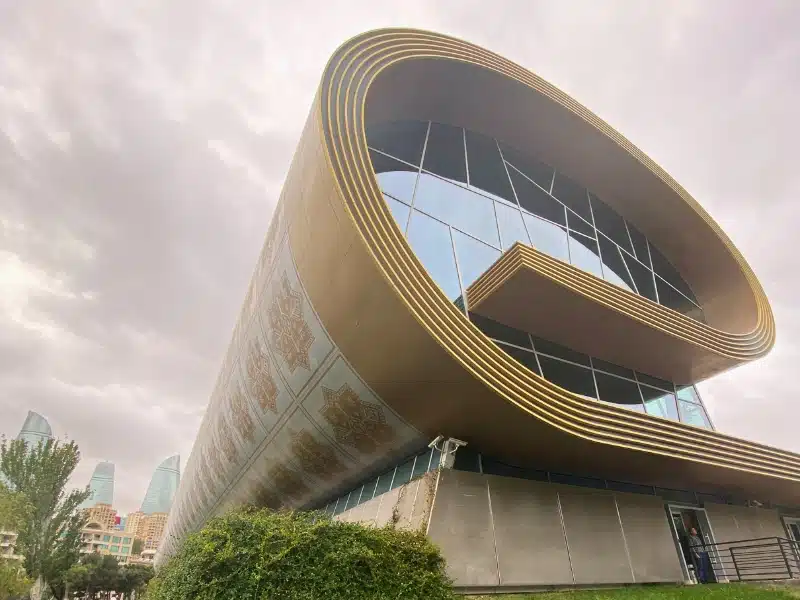
Bibi Heybat Mosque
The Bibi-Heybat Mosque is one of the most significant monuments of Islamic architecture in the region. The original mosque was built in the 13th century during the Shirvanshah dynasty under the rule of Shirvanshah Farrukhzad II. It was an important center of religious and cultural life.
The original structure was destroyed by the Bolsheviks in 1936 during the Soviet anti-religious campaign. The current mosque, built in the 1990s after Azerbaijan regained independence, is a modern reconstruction based on historical records and traditional architectural styles.
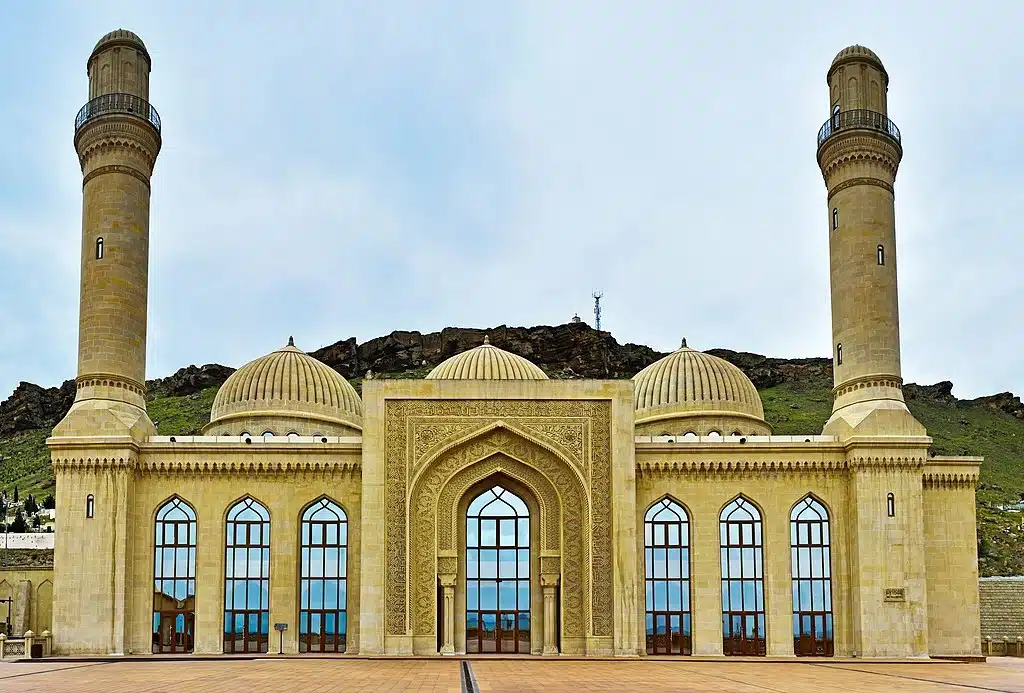
Embrace Baku’s Outdoor Spaces
Dənizkənarı Milli Park
One of the highlights of visiting Baku is the city’s stunning Baku Boulevard, which stretches along the Baku’s seafront. This vibrant, marble-lined walkway is a popular gathering spot for locals and visitors, offering breathtaking views of the city’s skyline and the glistening waters of the Caspian Sea.
The promenade traditionally starts at Freedom Square and continues west to the Old City and beyond. Since 2012, the Yeni Bulvar, or new boulevard, has almost doubled its length to 3.75 km and now includes National Flag Square and White City Boulevard.
It’s fun to grab an e-scooter to explore (be mindful that scooters are not allowed in some areas). All you need to do is download an app, load up with funds, and grab a scooter and go. Wingz and Bolt both provide e-scooters and apps, and you can rent directly from Samokat.az at the Nasimi Shopping Centre by the Akhundov National Library.
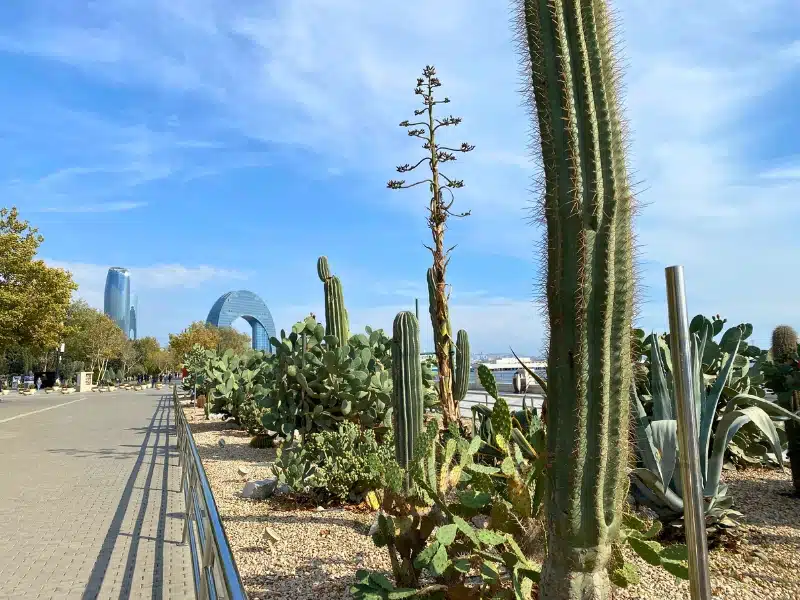
Highland Park
Highland Park is a popular scenic spot situated on a hill that offers breathtaking panoramic views of the city, the Caspian Sea, and notable landmarks like the Flame Towers and the historic Icherisheher.
The beautifully landscaped park is particularly famous for its vantage point, making it ideal for observing the blend of ancient and modern architecture that characterizes Baku. This is especially true during sunset, when the city lights create a magical atmosphere.
The park is also home to Martyrs’ Lane, a solemn memorial dedicated to those who lost their lives during the Black January events of 1990 and the Nagorno-Karabakh conflict and Turkish troops who were killed while fighting Bolshevik and Armenian forces during the Battle of Baku in 1918. At the start of the Martyrs’ Lane is the Shahidlar Monument, or eternal flame.
Visitors can reach Highland Park via a funicular railway that ascends the hill, offering scenic views of the city on the way up, or climb the punishing 200+ steps if the funicular is closed, as it is on Mondays.
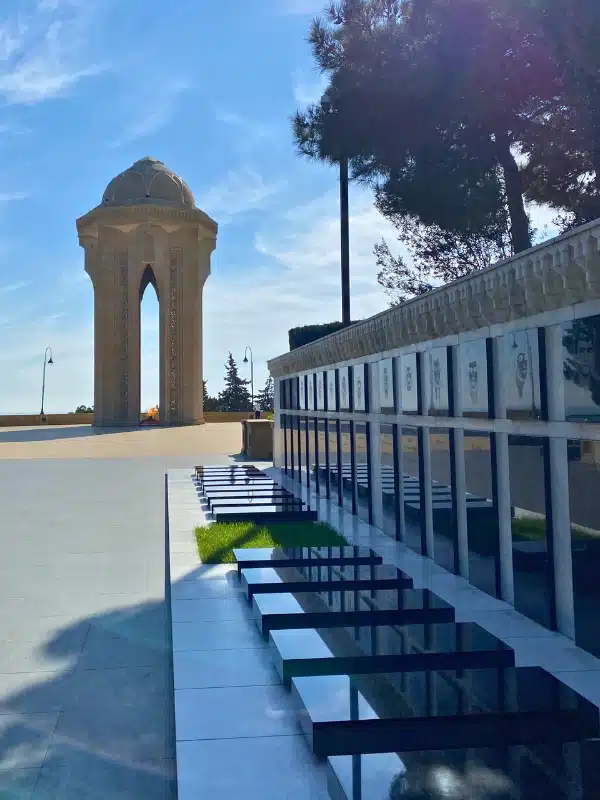
Other Caucasus Travel Ideas
Discover Baku’s Vibrant Food Scene
Azerbaijani Dishes
The city’s food scene is characterized by its use of fresh, locally sourced ingredients and a variety of regional specialties. Here’s a glimpse into some of the must-try foods and culinary experiences in Baku:
Pakhlava: Pakhlava in Baku is, as the name suggests, much like baklava in Turkey. The sweet pastry, known for its layers of flaky dough and spiced nut filling, is made in a diamond shape with an inlaid nut to symbolize fire. Pakhlava is usually served with sweet black tea and can be found in every bakery and café across the city.
Plov: A staple of Azerbaijani cuisine, plov is a fragrant rice dish often cooked with saffron, dried fruits, nuts, and a variety of meats such as lamb or chicken. Shah plov is when the pilaf is wrapped in a cocoon of flatbread that turns into a crisp shell, called a gazmakh, when baked.
Dolma: Dolma is grape leaves or vegetables stuffed with a mixture of rice, minced meat, and spices. It’s typically served with yogurt or a tangy sauce.
Dushbara: Dushbara are small dumplings filled with minced meat and served in a flavorful broth, often garnished with fresh herbs and a squeeze of lemon.
Kutab: A type of stuffed flatbread, kutab is filled with various ingredients like minced meat, spinach, or pumpkin and then cooked on a griddle.
Yasil Bazaar
Located a little further from the city centre, Yasil Bazaar is a large green market bursting with organic and exotic fruit, including boxes and boxes of pomegranates, traditionally a symbol of love in Azerbaijan. You’ll also see local seasonal vegetables, herbs and spices, nuts and dried fruits, juices, compotes, honey and jams, as well as local delicacies like caviar and saffron.
It’s a great place to try new flavors and foods and buy spices to take home. Stall holders are happy for you to sample their wares, but you must be prepared to haggle if you want to buy.
Places to Eat
In the Old Town, many of the historic caravanserai have been converted into restaurants and cafés. But there is much to explore in the new town too, especially once you’ve sampled the traditional cuisine.
We had the most delicious kutabi and shah plov in Ocaq Art Café, a stylish and small restaurant by the Old Town walls. The food and service were impeccable, and this was one of our best meals in Baku.
We ate chicken and prunes with pilaf at Firuze Restorani in Fountains Square. This was more touristy and very busy, but the service, food, and wine were excellent. There was less opportunity to linger and unpack the day after dinner as it was clear they needed the table back!
Fisincan Café & Restaurant served a delicious sadj, a dish of lamb meat and vegetables, including eggplants, peppers, tomatoes, potatoes, onions, and zucchini, layered with the meat in a shallow bowl called a sadj, hence the name of the dish.
We also spent an afternoon and evening working in Coffee Moffie, a hidden gem where local communities socialize. The staff are super friendly and serve freshly roasted coffee, sandwiches, cakes, and wine. Friday is live piano music night starting at 8.30pm.
Explore the Absheron Peninsula
The peninsula is an odd place – not the city, but not the stunning countryside you’ll see if you venture away from Baku. There are oil pumpjacks, known as nodding donkeys, everywhere, lending a distinctive smell to the air – next to the road, squeezed in between residential properties, and wherever there was a slither of space.
It is almost impossible to access the shores of the Caspian Sea unless you’re staying in a coastal hotel or spending the day at a private beach club, but given the amount of oil in the water, I’d be cautious about swimming in it!
Yanardag
Yanardag, which means ‘Burning Mountain’ in Azerbaijani, is a natural gas fire that continuously burns. The natural phenomenon is fueled by gas leaking through the sandstone and creating a flame that never dies.
The actual fire is maybe two meters long and burns quite low, with none of the leaping flames we were expecting – to be honest, it was a little underwhelming. On the hill behind the fire, you can rent quad bikes and take a short walk, but there’s not much else here, so you only need an hour at the most.
RELATED POST: Things to Do in Azerbaijan: Exploring the Land of Fire
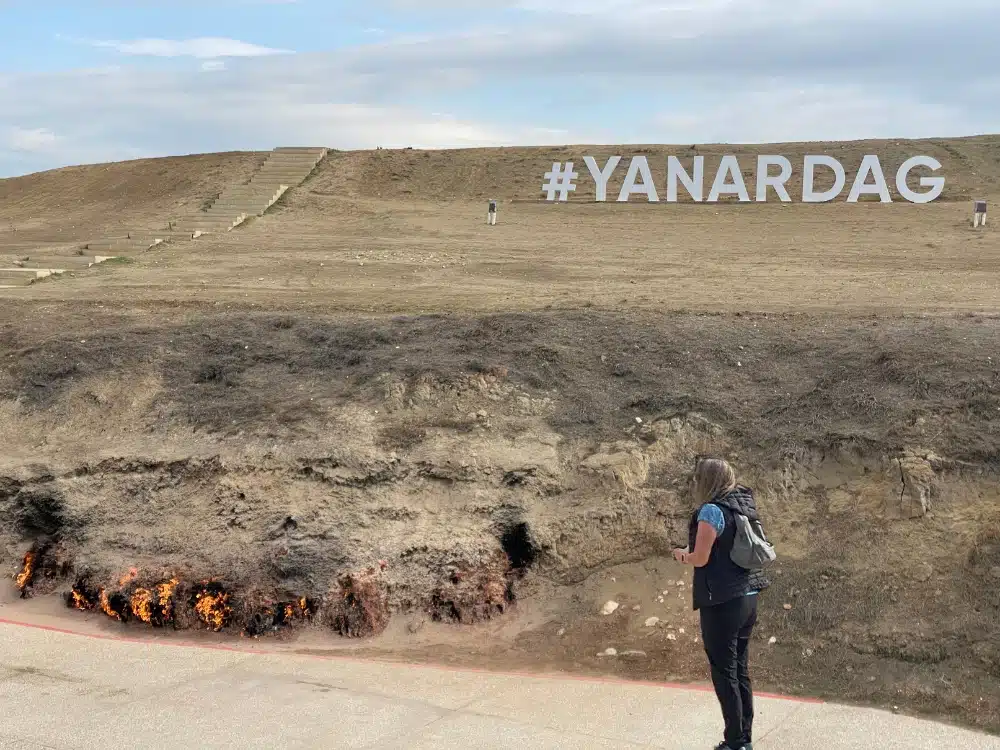
Ateshgah
The Ateshgah, also known as the Fire Temple of Baku, is a historic religious site whose name is derived from the Persian words atash (fire) and gah (place), translating to ‘place of fire.’ We found the temple much more interesting than Yanardag.
The temple, which dates back to the 17th and 18th centuries, was built by Zoroastrians, followers of an ancient religion that worships fire as a symbol of purity and divinity. In the center of the courtyard stands an altar, where a natural gas flame, originally fed by underground gas deposits, would burn continuously, symbolizing the eternal flame of the Zoroastrian faith.
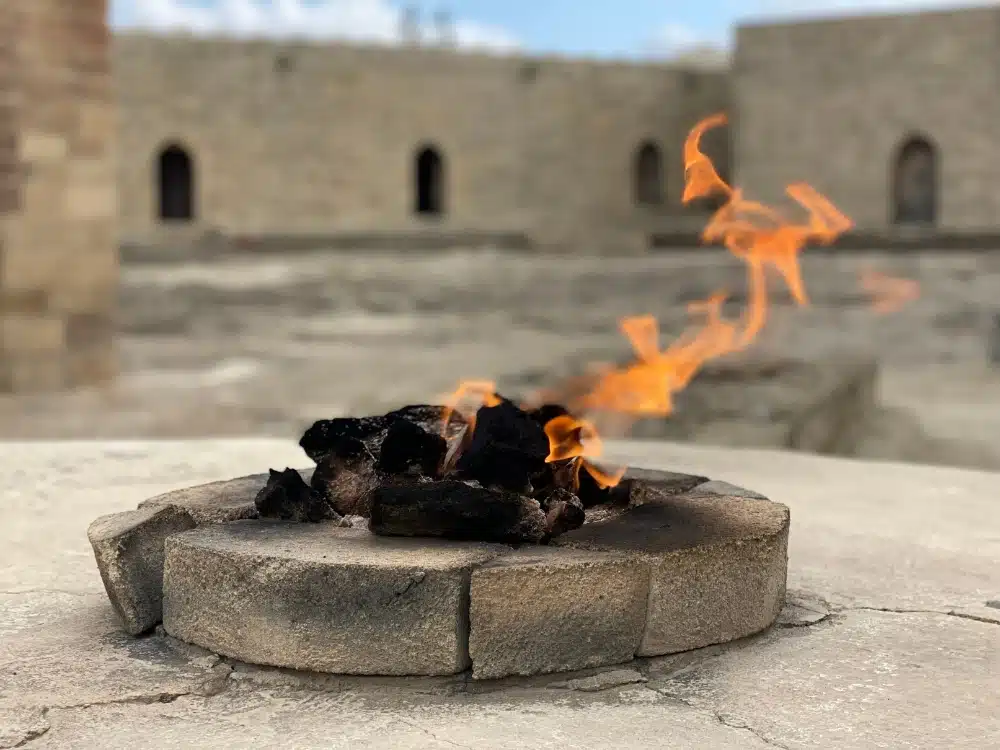
Gobustan
Not quite on the peninsula but an easy day trip from Baku, Gobustan National Park is a UNESCO site and home to one of the most unique natural wonders in Azerbaijan – the mud volcanoes.
These otherworldly mini-vent holes are the result of gas and mud being released from deep within the Earth’s crust, creating a constantly evolving landscape that resembles something straight out of a science fiction movie.
Gobustan is also home to the Gobustan Rock Art Cultural Landscape, where more than 6,000 petroglyphs on more than 1,000 surfaces of rock reflect 40,000 years of rock art history. There is also an on-site museum to learn more about the geological and cultural significance of this unique natural wonder.
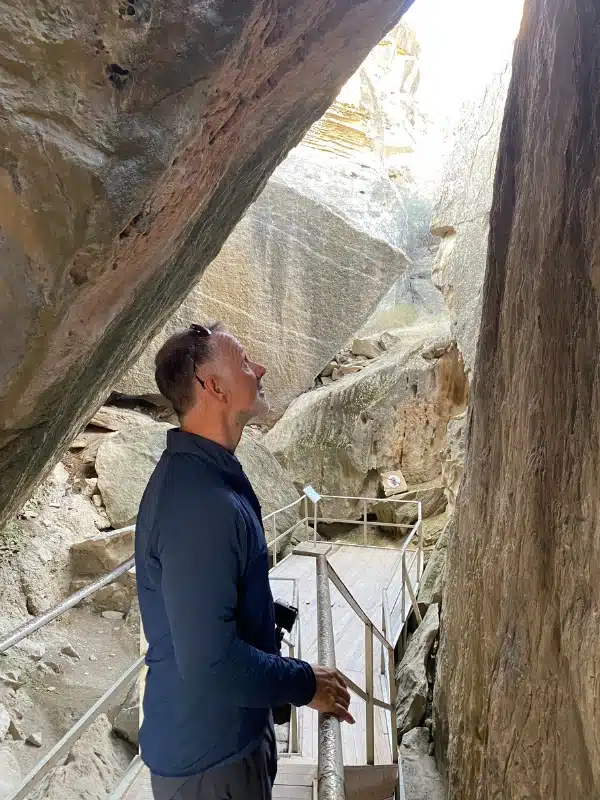
Absheron Peninsula Trips
You can book a half-day trip from Baku to visit Yanar Dag, Ateshgah, and Gobustan, ticking off three more of Baku’s must-see attractions from your list. These are our top picks:
Where to Stay in Baku
Upmarket: The Merchant is one of Baku’s premier hotels. Right in the city center, everything about this hotel is just gorgeous. From the interior design to the bed quality and food offerings, it’s hard to find fault. This is a great option if you’re celebrating a special occasion in Baku.
Mid-Range: In the heart of the Old Town, the Sultan Inn Boutique Hotel offers comfortable and modern rooms, many with views of the Madien’s Tower and Flame Towers. For even better views, there is a rooftop terrace and restaurant.
Budget: The Home Boutique Hotel is in the Yasamal district, a 10-minute walk from the old town. The rooms are beautifully clean and comfortable, the staff is attentive and helpful, and the traditional breakfast is delicious. This hotel offers seriously good value for money.
Hostel: CTH-Baku-Hostel is close to the Nizami metro stop and Nizami Mall. It offers a range of private rooms and provides excellent value for money in a great location.
Getting Around Baku
Make sure you have travel insurance you can trust when visiting Azerbaijan. We recommend True Traveller for their 5-star TrustPilot reviews, variety of cover options, best activities cover as standard, great prices, and excellent service.
Practical Tips for Visiting Baku
That’s a Wrap!
Baku, the vibrant capital of Azerbaijan, defies expectations. From the enchanting Old City to cutting-edge modern architecture, Baku seamlessly blends its rich history with a forward-looking vision, creating a truly unique and captivating destination.
Whether you’re drawn to its cultural offerings, natural wonders, or delicious cuisine, Baku will leave a lasting impression on all who visit. So, pack your bags and get ready to discover the wonders of the ‘Land of Fire’ – a city that will captivate your senses and leave you longing to return.
Looking for more destination ideas? Check out these top posts…
Pyrenees Road Trip & Hiking Itinerary: 7–9 Days with an Optional Spain Extension
South of France Road Trip: The Ultimate 10 Day Driving Route
Route Napoléon: Following Napoleon Through the French Alps
Route des Grandes Alpes: An Epic French Road Trip
Brittany Road Trip: The Wild Coast and Historic Heart of Western France by Car
Dordogne Road Trip: The Best of Southwest France by Car
Love it? Pin it!
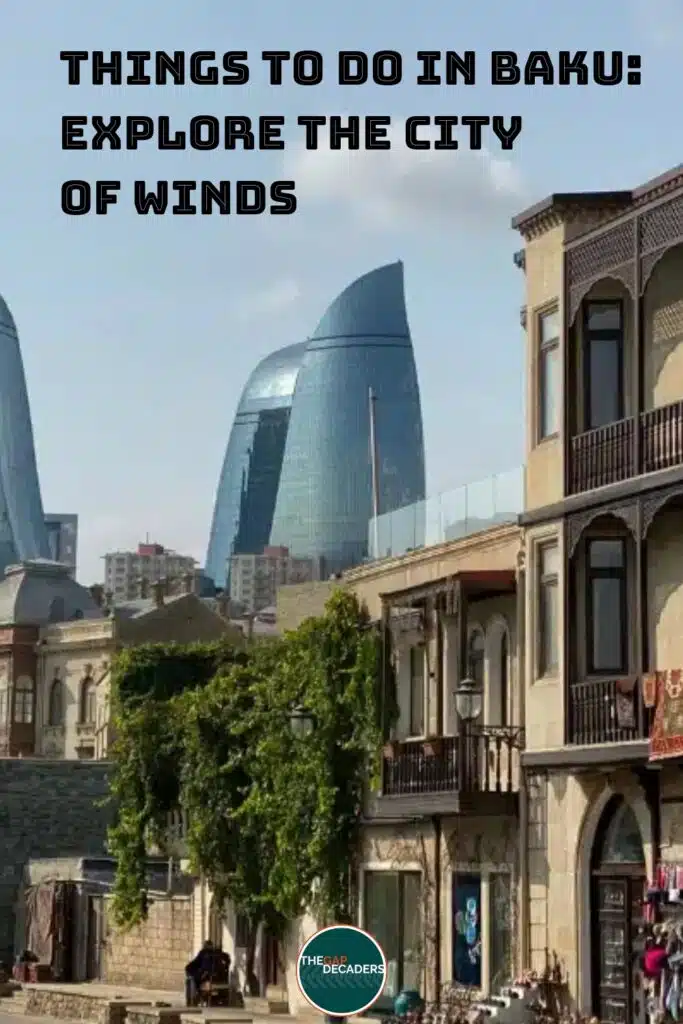
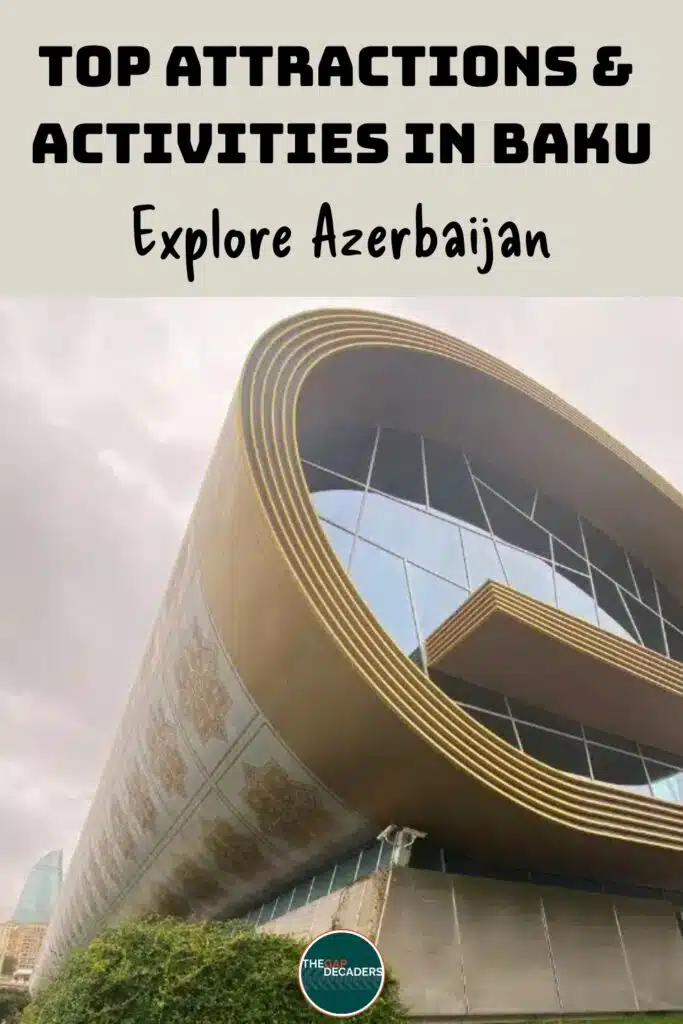


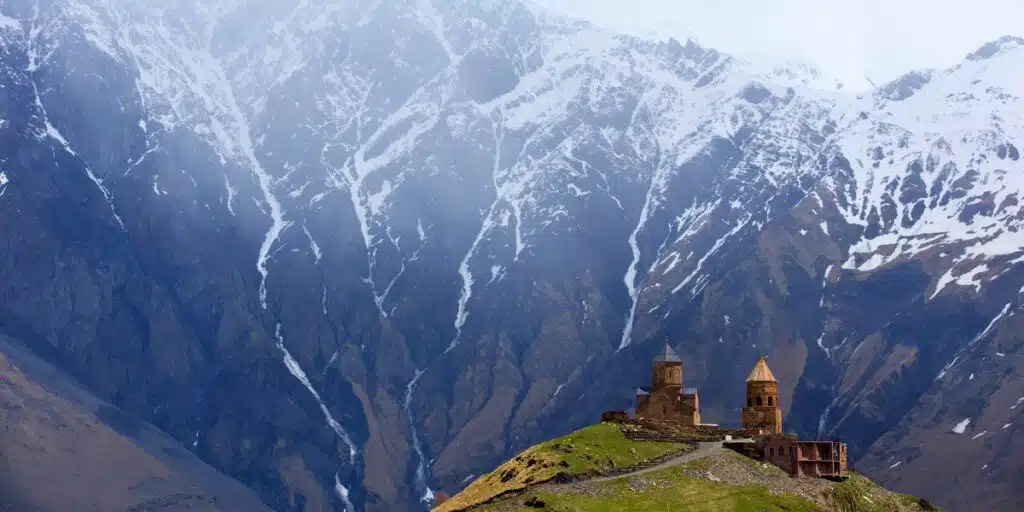
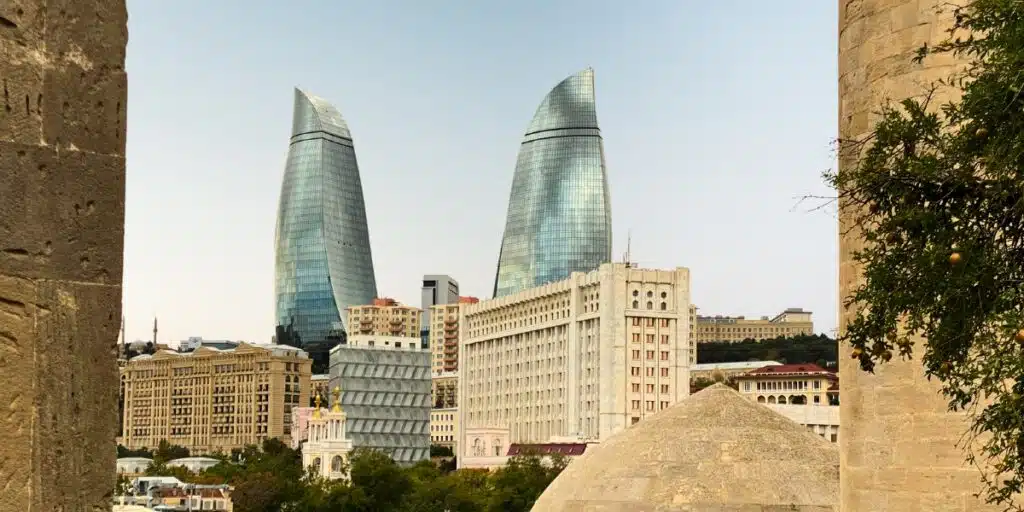
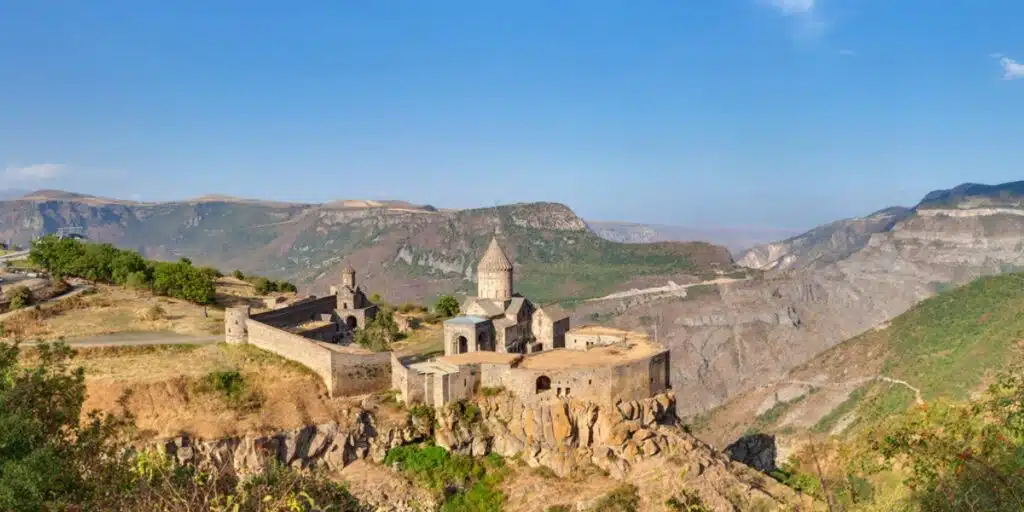
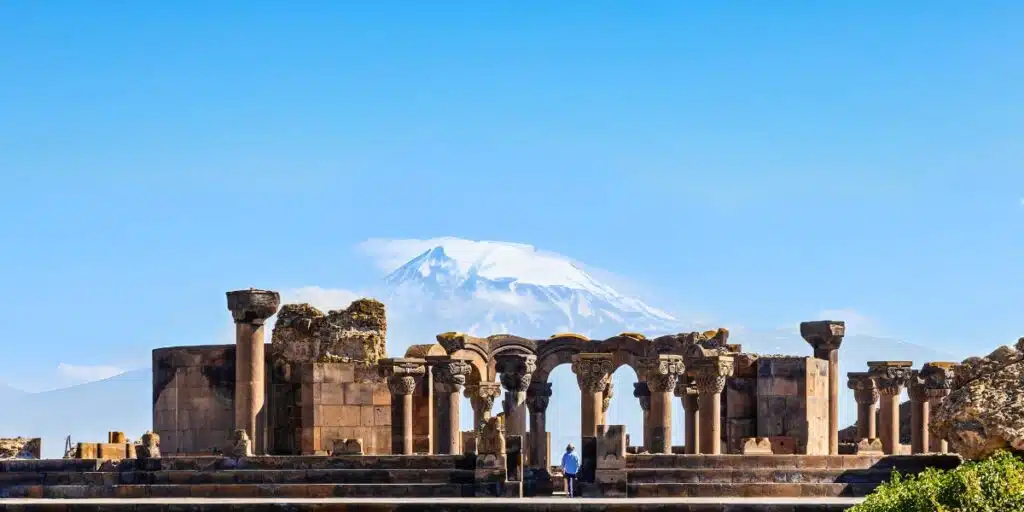
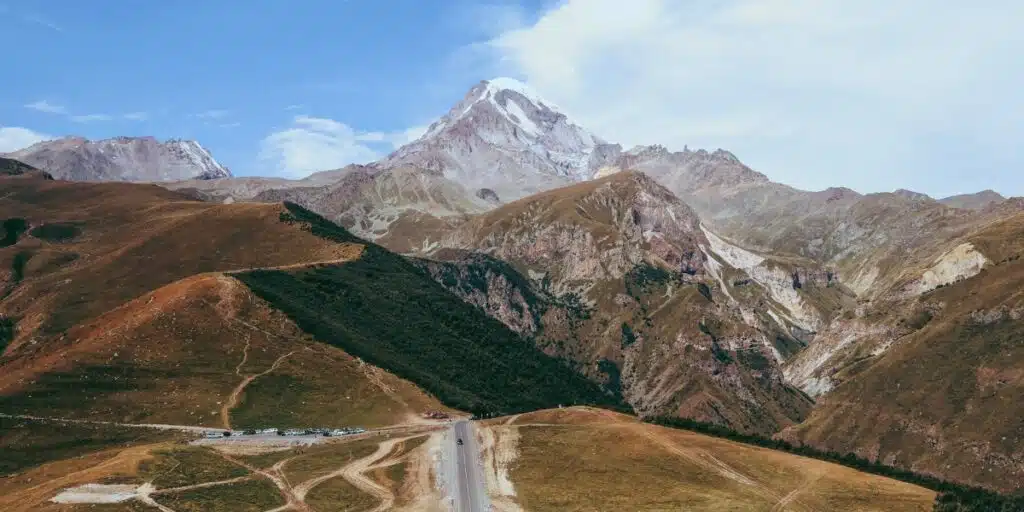
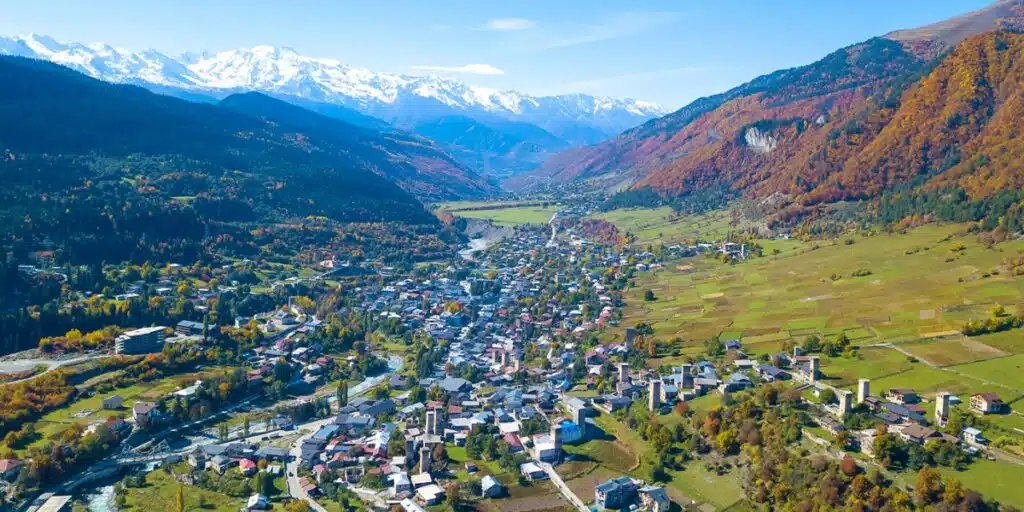
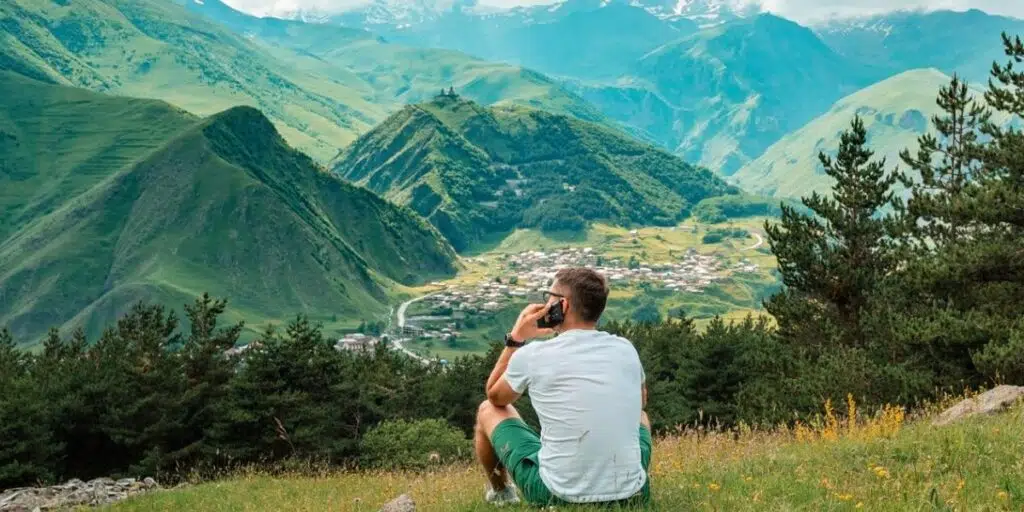
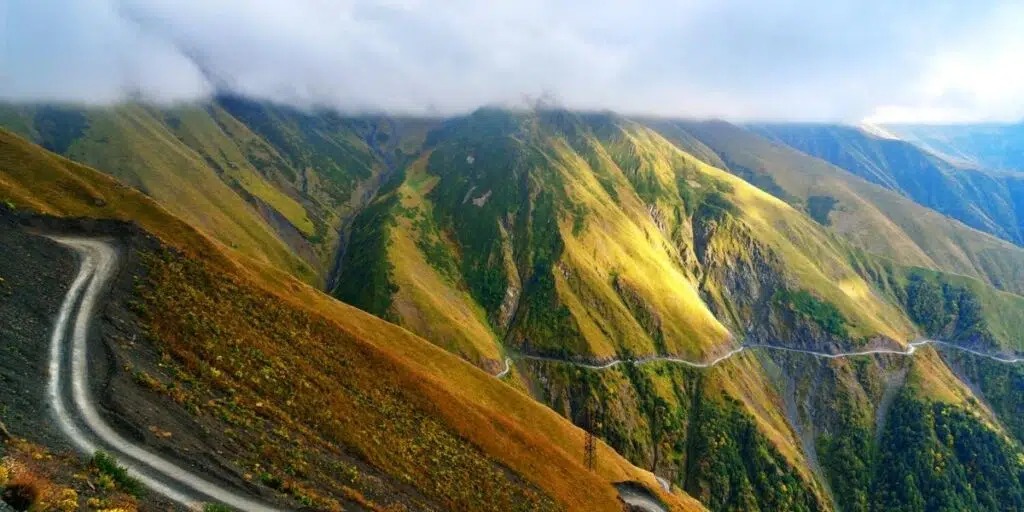
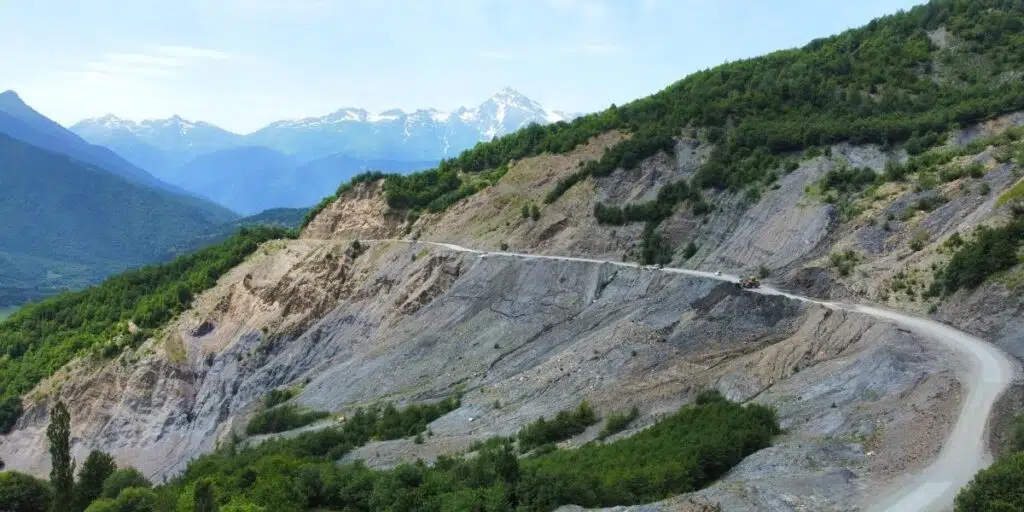
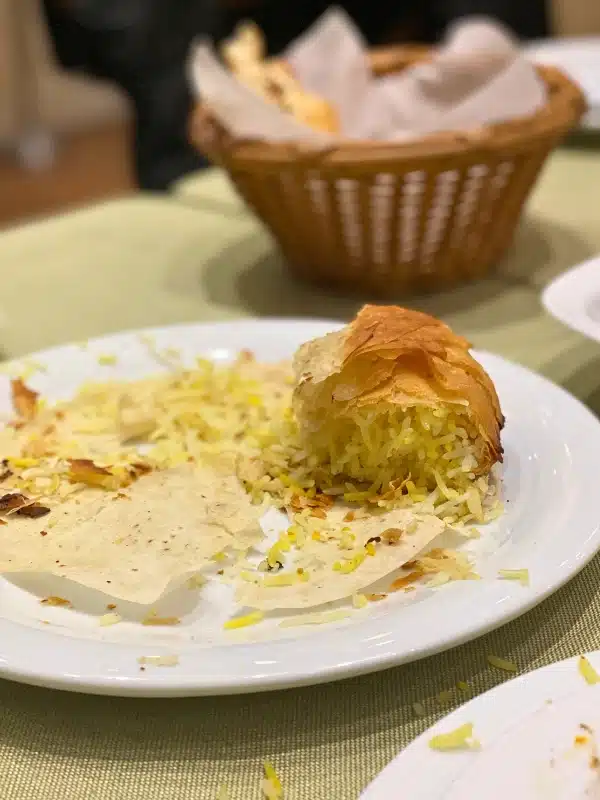
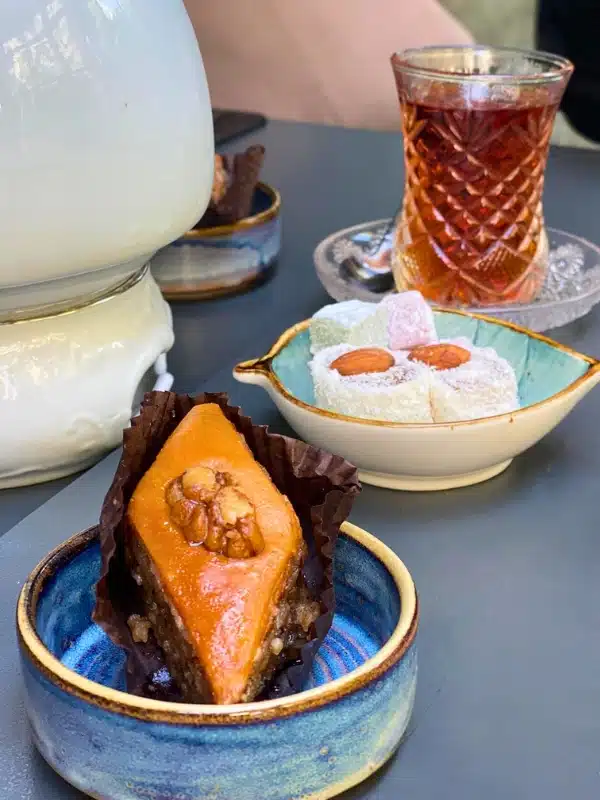
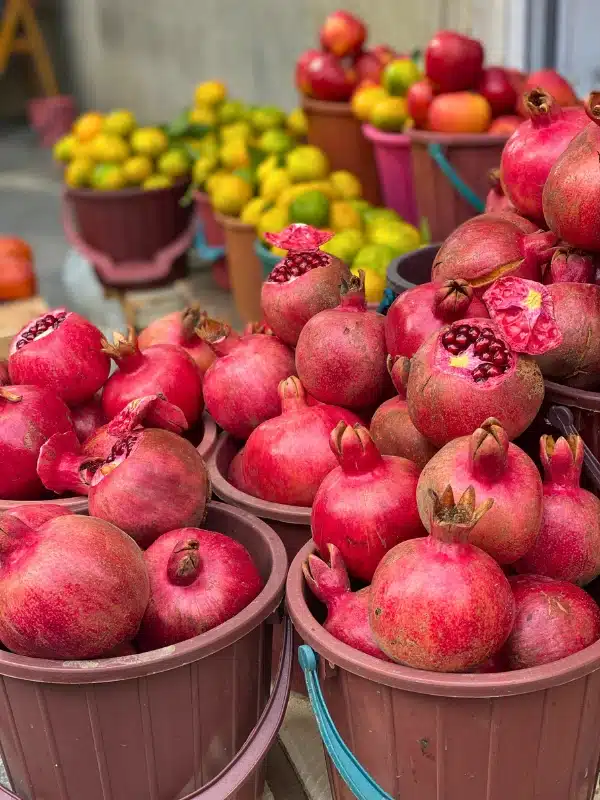
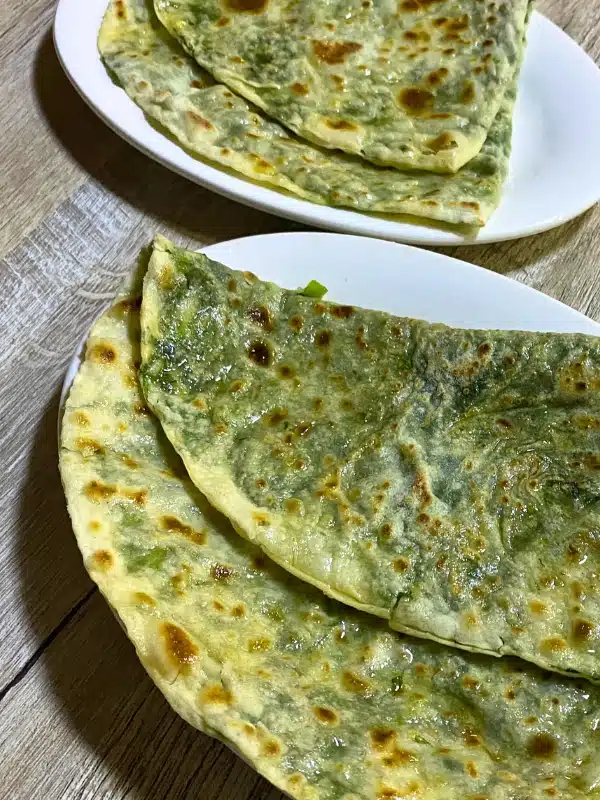
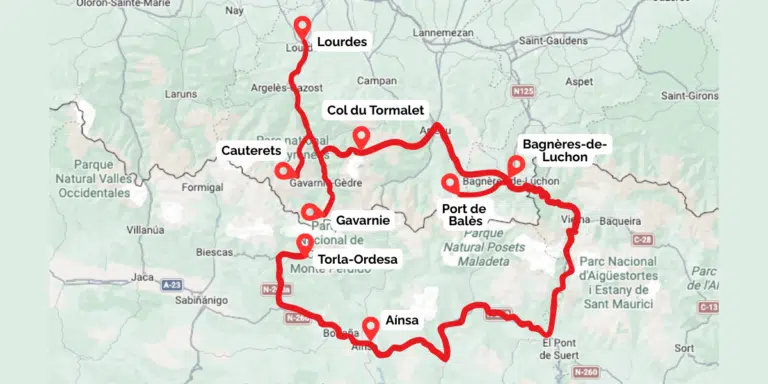
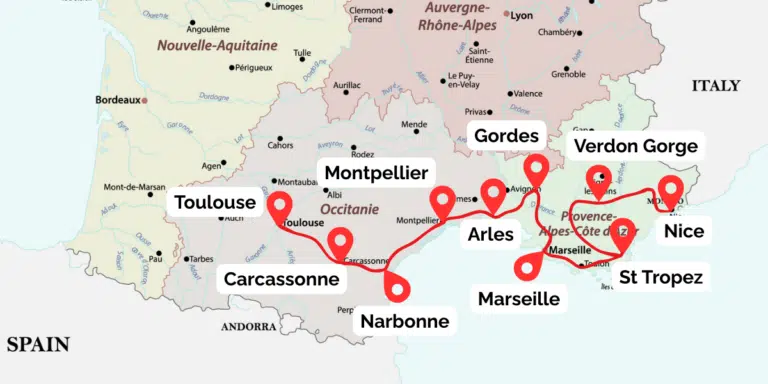
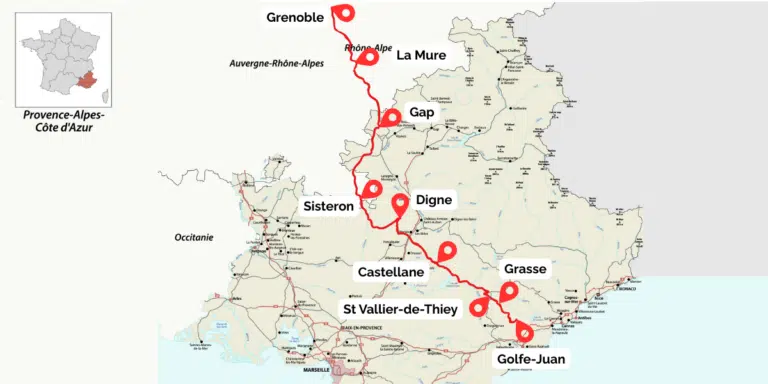

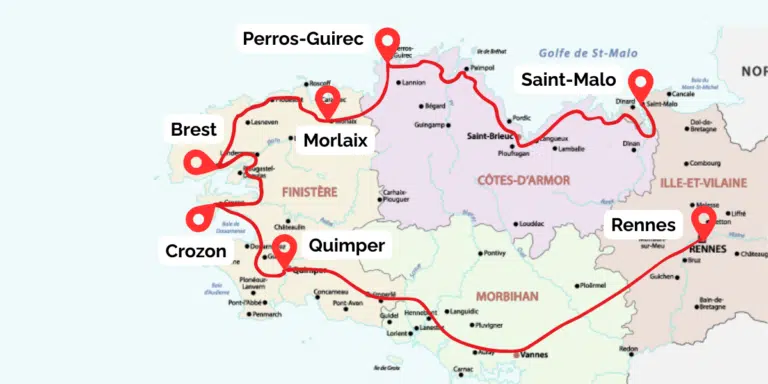
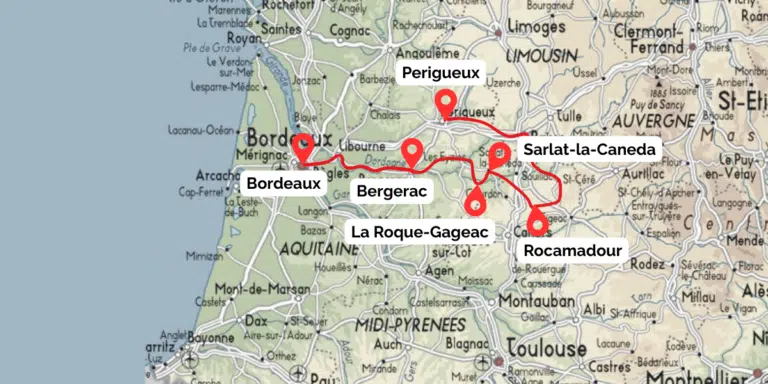
Hi Sammie I loved the Maiden Tower. It’s one of the oldest structures and has a really interesting museum insdie with loda sof old picrures of Baku.
Actually, Azerbaijani cuisine is a rich tapestry of flavors influenced by its location and history. From the delicate spicing of pilafs to the hearty stews and kebabs, it’s a culinary journey worth exploring!
whats the big deal about azerbaijani dishes they seem just like any other food from that region no? like, convince me there’s something super special about it, cause i aint seeing it
Yes! The Maiden Tower is a gem in the city. Don’t miss it when you’re here. It’s got history and some mystery to it. Plus, like mentioned, the view up top is unbeatable.
Actually, yeah, the Maiden Tower is centuries old and pretty iconic in Baku. You can totally go inside, offers some of the best views of the city. Definitely worth it if you’re visiting.
imagine if we could code a time-travel app to see baku back in the day. LOL, then the Old City won’t be just a ‘journey through time’, but a literal debug session in history.
hey, izzy nicholls, i was wondering about the maiden tower in baku. is it like really old and can you go inside it or what? sounds cool but don’t know much about it. cheers!